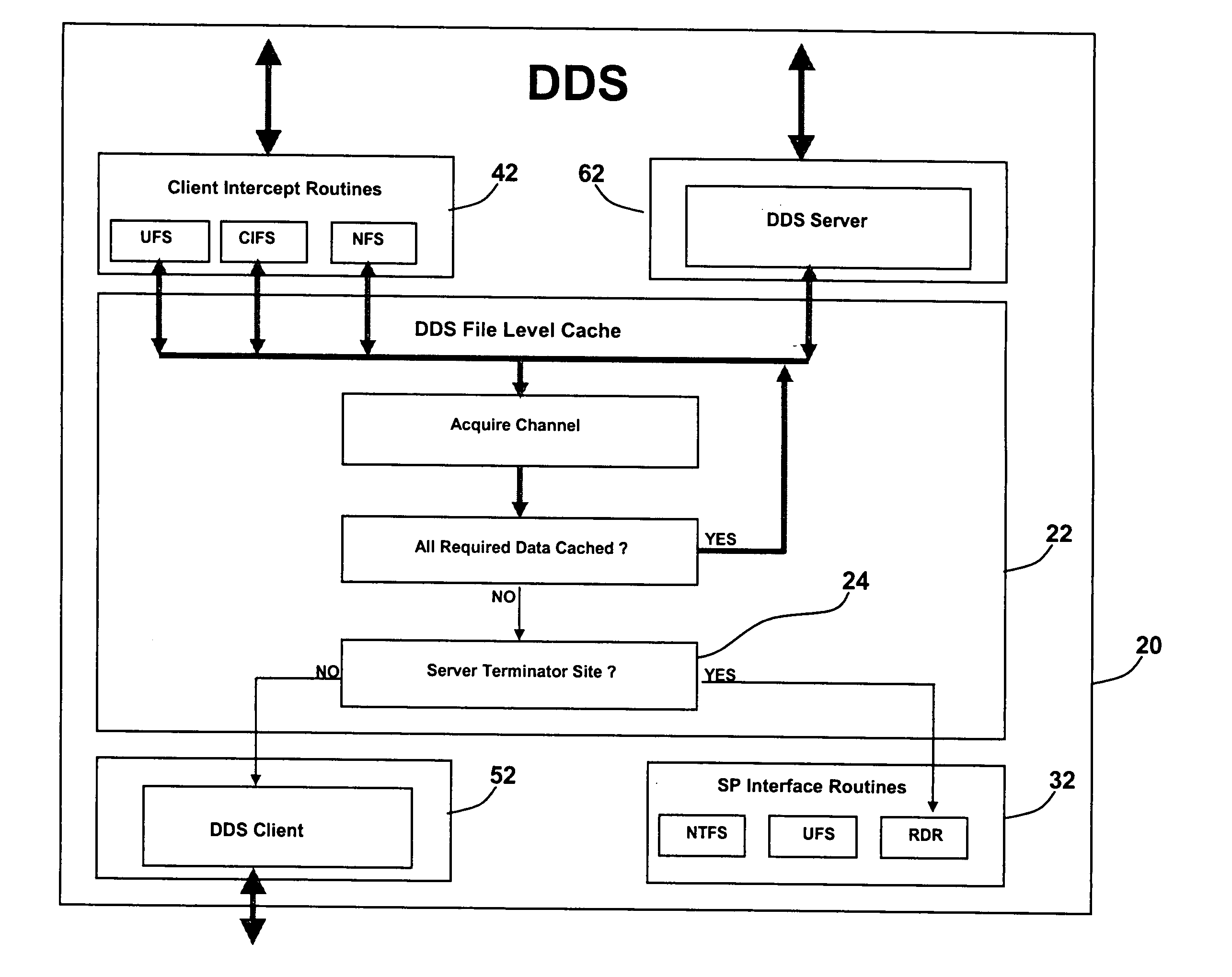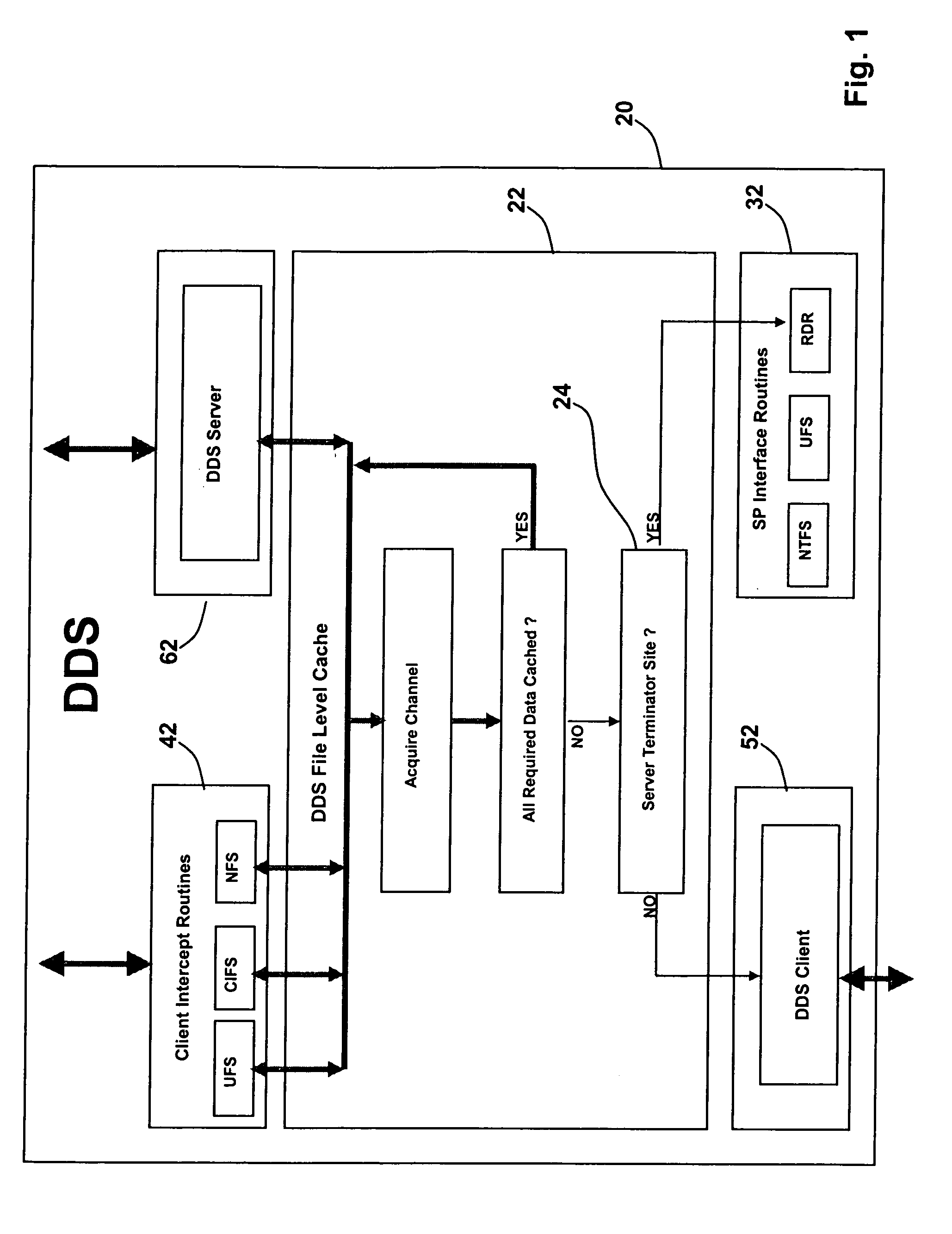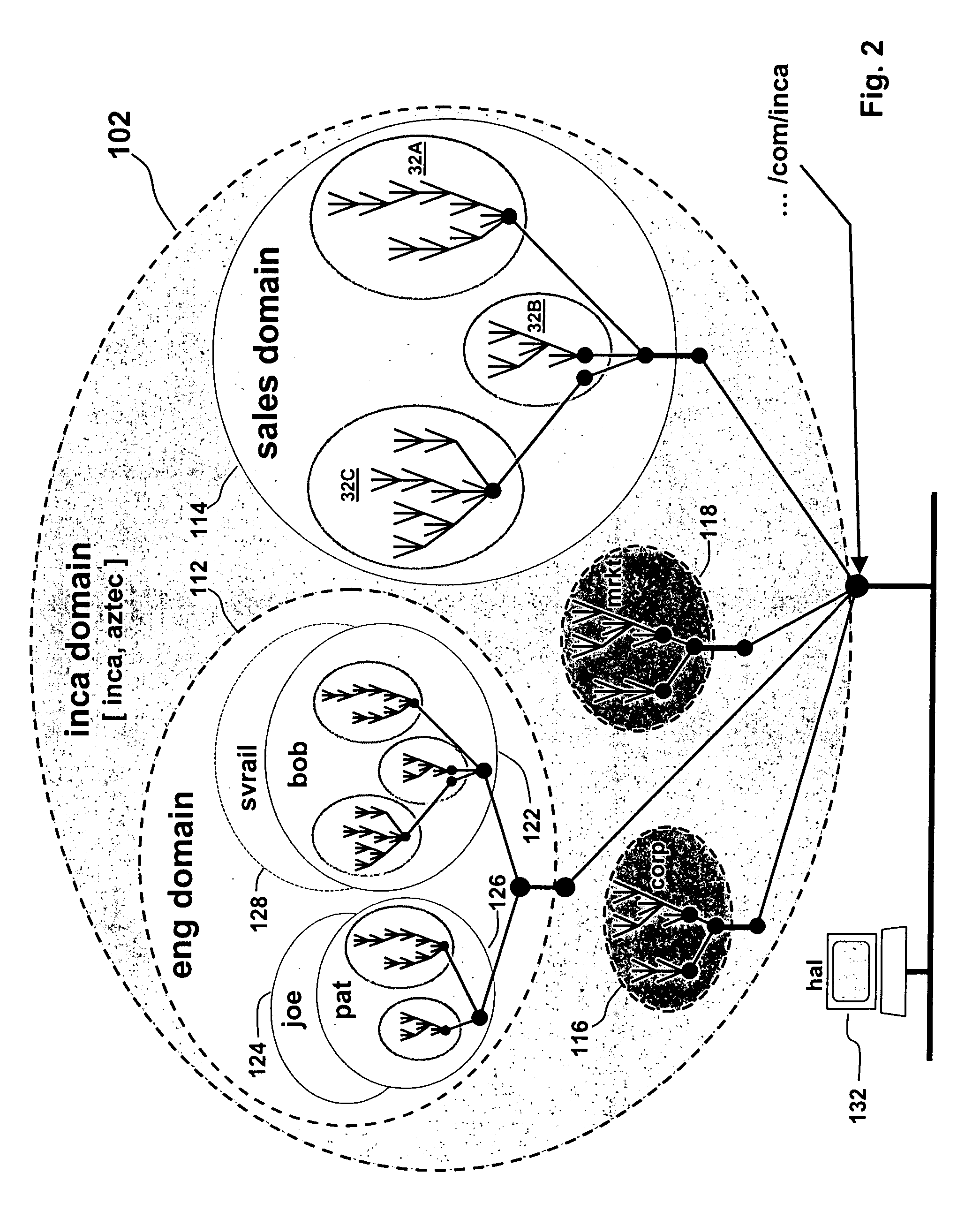Full text search capabilities integrated into distributed file systems
a file system and full text technology, applied in the field of full text indexing and searching applied to distributed file systems, can solve the problems of information loss large volume of data contained within the file system, and current file system only a very limited ability to locate particular information contained in the system's files
- Summary
- Abstract
- Description
- Claims
- Application Information
AI Technical Summary
Benefits of technology
Problems solved by technology
Method used
Image
Examples
Embodiment Construction
[0162] Embedding a full text search engine into a distributed file system to automatically index the file system's content requires that the search engine: [0163] Integrate seamlessly into virtual file server frameworks. [0164] Be capable of making new content immediately searchable, i.e. obviate a need to perform a separate batch process to index the file system's content. [0165] Be highly scalable—during both index generation and retrieval operations.
Consequently, integrating a content based retrieval system into a distributed file system breaks down into separate tasks of integrating an index generation capability and integrating a content retrieval capability into the distributed file system.
Integrating Index Generation
[0166] New content becomes instantly searchable when content indexing is integrated directly into the main code path of the software routines implementing a distributed file system. However, the sheer volume of information stored in large distributed file sys...
PUM
 Login to View More
Login to View More Abstract
Description
Claims
Application Information
 Login to View More
Login to View More - R&D
- Intellectual Property
- Life Sciences
- Materials
- Tech Scout
- Unparalleled Data Quality
- Higher Quality Content
- 60% Fewer Hallucinations
Browse by: Latest US Patents, China's latest patents, Technical Efficacy Thesaurus, Application Domain, Technology Topic, Popular Technical Reports.
© 2025 PatSnap. All rights reserved.Legal|Privacy policy|Modern Slavery Act Transparency Statement|Sitemap|About US| Contact US: help@patsnap.com



